Veterinarian
For our furry and feathery patients, in consultation with their veterinarians, we prepare custom medications from the smallest of doses to the largest of doses.
Whether your pet is a cat, dog, bird, rabbit, guinea pig or other furry, feathery, scaly companion, we can compound medication for their medical needs in a variety of dosages, flavours and application methods to make it as easy as possible to get them to take their medicine.
Your pets are special. Why not give them the customized care they deserve?
The Compounding Solution.
Compounding is not meant to replace your Veterinarian, in fact, just the opposite is true! Today’s Veterinarians work closely with Compounding Pharmacies to extend the scope of their treatment options. There are often limitations in commercially available medications. This could be due to discontinued products, limitations in strengths, flavours which pets resist, inability to take medication orally, to mention just a few. Together a Veterinarian and Compounding Pharmacy are able to customize medications to meet the specific needs of animal patients. Giving them the treatment they deserve and maximising the outcome!
As any pet owner is well aware, animals can be extremely difficult to treat with medications. Cats are notorious for refusing to swallow pills, and usually will eat right around one disguised in food! Dosages can be very tricky with dogs – a dose of medication that works for an 80-pound Golden Retriever may be far too much for a six-pound Yorkie to handle.
Large and exotic pets pose many unique medication challenges. A compounding pharmacist is equipped to help them all!
- Cats
- Dogs
- Horses
- Rabbits
- Birds
- Ferrets
- Reptiles
- Even animals in zoos and acquariums!
Flavoured Medicine
The pet who refuses to take medication because of the taste is a prime opportunity for compounding. Cats don’t like pills, but they do like tuna! Dogs don’t appreciate a traditional solution of medication being squirted into their mouth, but they’ll take it gladly when it’s flavoured with meat, chicken or part of a tasty biscuit or treat. Birds cannot take large volumes of liquid medication, but they will accept a small dose of a tasty, fruit-flavoured, concentrated solution.
Solving Dosage Problems
Just like their owners, animals are individual and unique. They come in different shapes and sizes, and may be sensitive to ingredients like lactose. As a result, not all commercially available medicines are appropriate for every pet. That’s where compounding is especially helpful. In this situation, your veterinarian can prescribe a flavored liquid, treat, or other dosage form with the amount of medication that is exactly right for your pet’s size and condition.
Commercially Unavailable Medicine
From time to time, a manufacturer may discontinue a veterinary medication. Often this is because it is not needed in the vast quantities necessary to make mass production cost-effective, but that doesn’t mean there aren’t still some pets that need it. When that medication has worked well for animals, a compounding pharmacist can prepare a prescription for the required therapy – and tailor the strength, dosage form, and flavor to that pet’s specific needs.
Transdermal Application of Medication to a Pet’s Ear
Transdermal means the absorption of a medicine or drug through the skin. In simple terms, a drug is applied to the skin, where it is absorbed into the bloodstream. Transdermal medications have many advantages, chief among them being ease of application.
Medications that can be absorbed through the skin bypass the need for pills or liquids, which can be a challenge to administer in some pets. (As many pet owners know!) In addition, because they are absorbed directly into the bloodstream, and avoid initially passing through the stomach and liver, drugs that are administered transdermally may be more effective or work faster than some oral medications, allowing for better treatments. Commonly associated gastric side effects and drug interactions are also avoided.
We can also prepare topical medications for direct application at the site of infections or inflammation.
Applying Transdermal Medication
Most transdermal medications will come in pre-dosed syringes. You should wear protective gloves when handling transdermal medications. Remember that these drugs have been formulated to cross the skin barrier, and you can potentially be exposed if you come in contact with them
The medication is applied to the inner surface of the ear flap where there is no hair and gently rubbed into the skin. Do not get it down in the ear canal, because that can be uncomfortable to your pet. The ear should be cleaned daily to avoid any build-up of old medication on the skin, which would adversely affect absorption. Follow the dosage instructions as prescribed by your Veterinarian.
Transdermal medications are an excellent alternative for some veterinary drugs. Talk to your Veterinarian to determine if a transdermal medication is appropriate for your pet.
You can also call us with any questions regarding your pet’s medication needs. We would be delighted to help you!
Some examples of our Veterinarian compounds include:
Amoxicillin, Amlodipine, Calcitriol, Diltiazem, Doxycycline, Enrofloxacin, Fluoxetine, Itraconazole, Methimazole, Metoclopromide, Metronidazole, Nitrofurantoin, Pentoxifylline, Phenoxybenzamine, Phenylpropanolamine,
Potassium Gluconate, Potassium Bromide, Prednisolone,
Ranitidine, Tramadol, Tylosin, Ursodiol.
A caring Veterinarian working closely with a Compounding Pharmacist can improve the health and happiness of your pet!
Call us today to discuss the needs of your pet. We would be delighted to help you!
